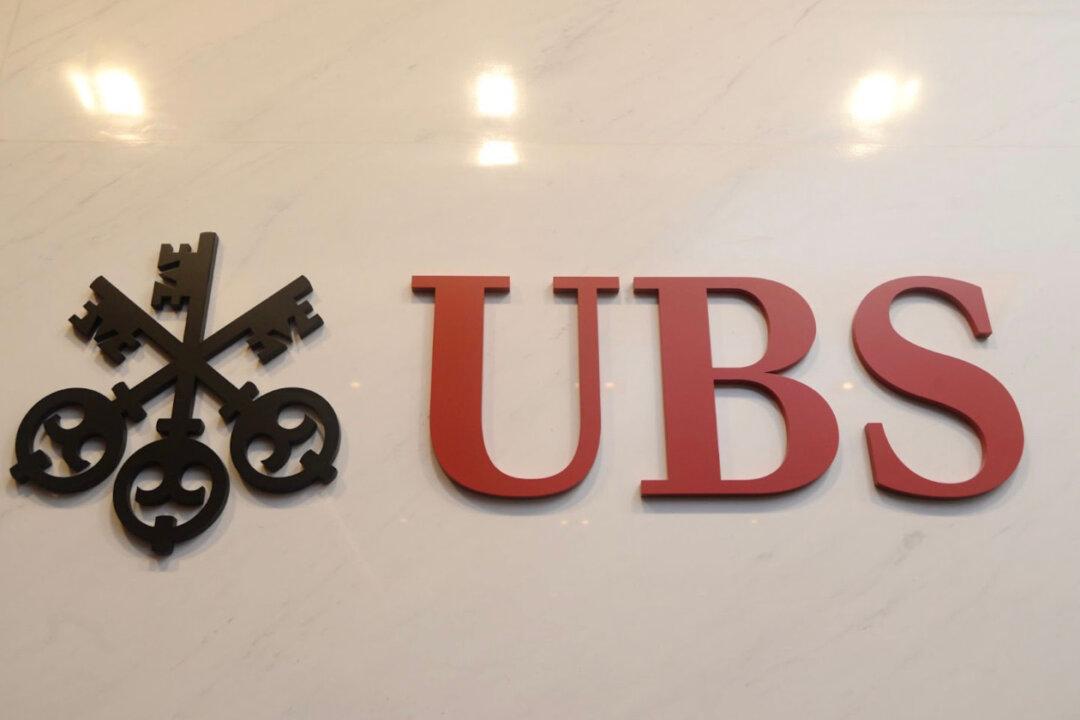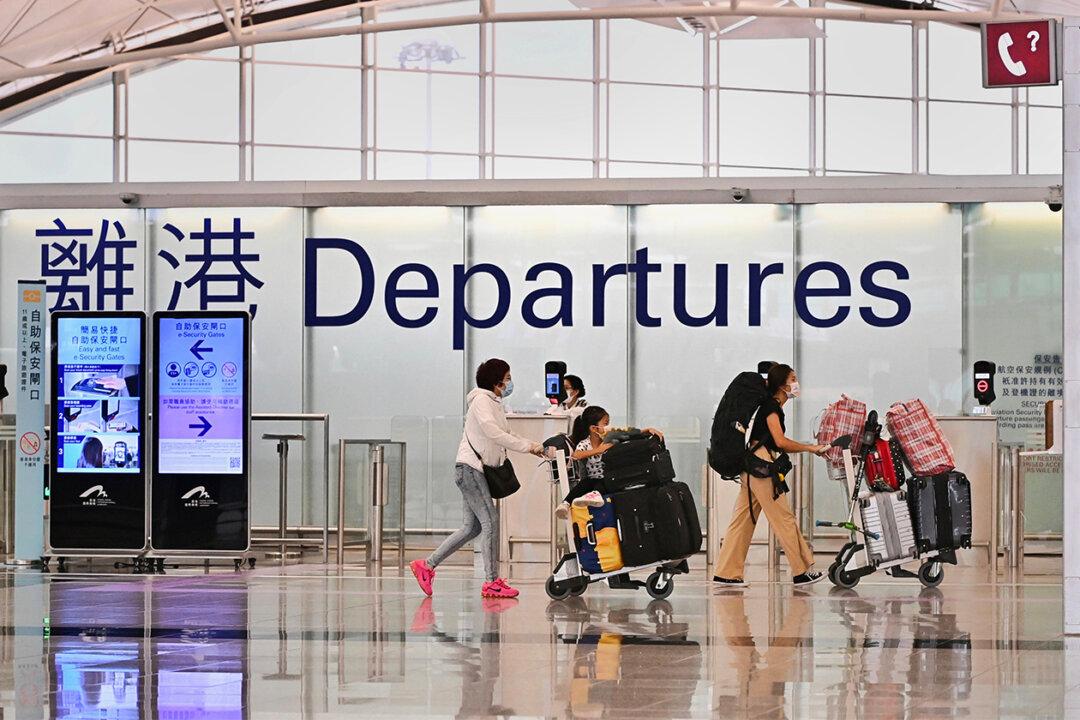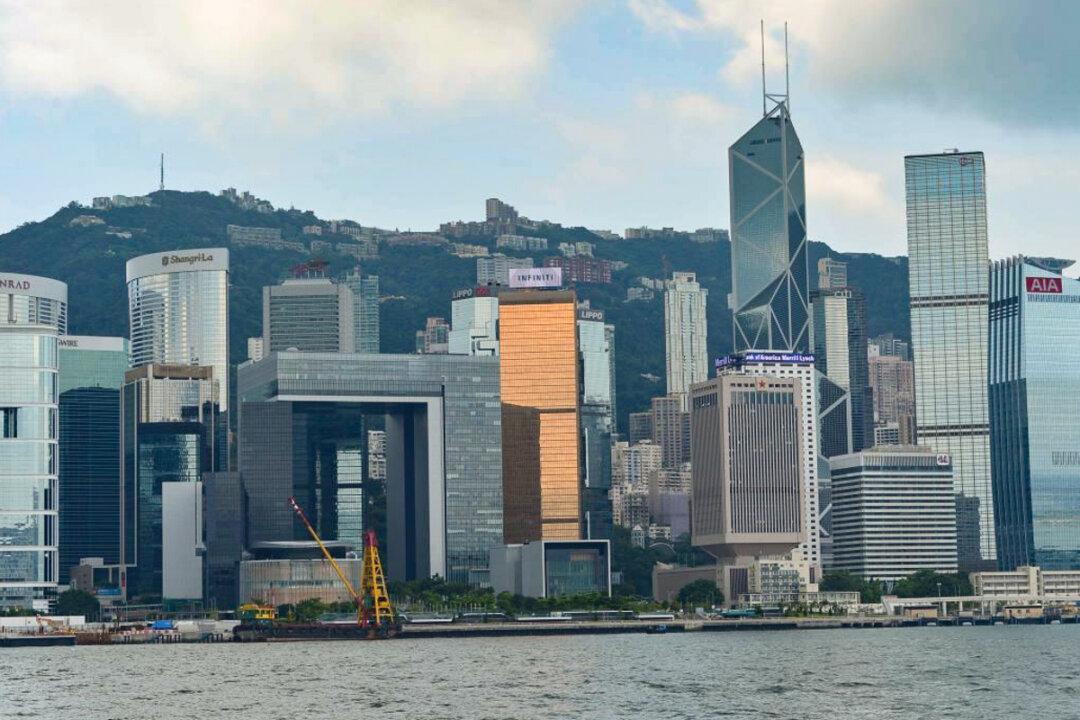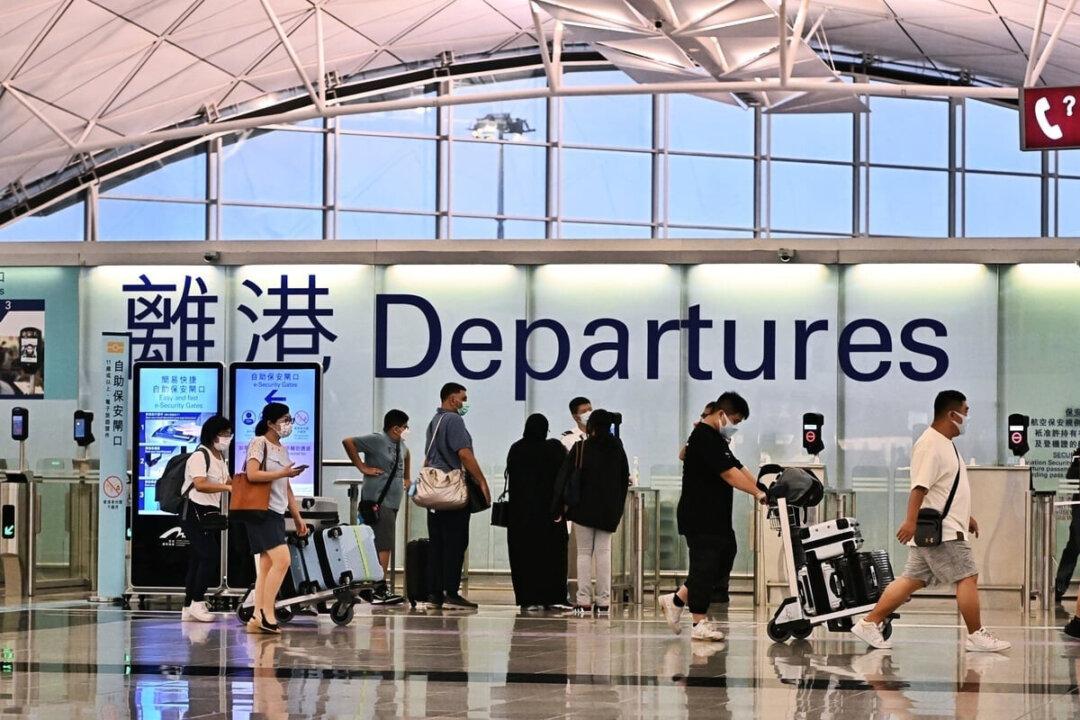Aggregate Balance of Banking System May Fall Below HK$100 Billion Before Fed Rate Hike
The Federal Reserve started the interest rate upward cycle in March this year. Hong Kong Monetary Authority followed suit (the current interbank lending rate is 4.48 percent), but HK banks only started raising interest rates in September. The Hong Kong-US interest rate gap has widened, leading to the continuous weakening of the Hong Kong dollar. Since May 12 this year, the Hong Kong Monetary Authority (HKMA) has undertaken 39 Hong Kong dollar selling orders, buying a total of HK$238.117 billion (US$30.3 billion). Eight out of the 13 deals were with an amount exceeding HK$10 billion (US$1.3 billion).The aggregate balance of the Hong Kong Banking System is likely to fall to HK$100.155 billion (US$13 billion) on Oct.31.
Gary Ng, a senior economist at Natixis, told the Epoch Times that although U.S. inflation has moderated in recent months due to the fall in energy and food prices, its growth rate is still at an elevated level. Coupled with the growth in the core inflation rate due to upward salary expectations, the Fed is expected to raise interest rates by another 75 basis points in November. Meanwhile, the aggregate balance of Hong Kong’s banking system will fall below the HK$100 billion level before the Federal Reserve meeting.
He further explained that a decline in the balance of the banking system means that liquidity is flowing out of Hong Kong dollars. Funds may still be parked in Hong Kong in US dollars, or they may turn to the U.S. to seek higher interest rate returns. In addition, the overall performance of the stock market is not that good. Overall, there is a high chance of short-term capital outflow.
HK Dollar Interest Rate Rises for 13 Consecutive Days
In recent days, the Hong Kong dollar interest rate has continued to rise. On Oct. 28, the one-month Hong Kong dollar offer rate (HIBOR) related to real estate mortgages rose to 3.11726 percent, which has risen for 13 consecutive days, the highest since Oct. 28, 2008, which was at 3.18214 percent.Ivy Wong Mei-fung, managing director of Centaline Mortgage Brokers Ltd., said that this reflects the one-month interbank interest rate for the bank’s capital cost has been significantly higher than the market mortgage rate ranging from 2.625 percent to 2.875 percent, and the bank has been under pressure to increase the prime rate (P). It is expected that after the U.S. interest rate meeting in early November, local banks will raise the prime rate again, and it is expected that the increase in prime will not be less than 0.25 percent.
Gary Ng of Natixis believes that in the face of reduced liquidity, Hong Kong banks must raise interest rates to retain funds, so they will introduce preferential policies to attract Hong Kong dollar and U.S. dollar deposits, which are all within the expectations of the linked exchange rate design. However, the banks of Hong Kong generally consider other factors, such as the macroeconomy, its own profit, and net interest margin, before raising interest rates. It is expected that the banks of Hong Kong will increase the prime interest rate by 0.125 percent this time and increase the interest rate again by 0.125 percent before the end of the year.
The U.S. Federal Reserve started its interest rate hike cycle in March and has raised interest rates five times, with a cumulative rate hike of three percent. Banks in Hong Kong did not follow suit until Sept. 22, when HSBC announced an increase of the prime interest rate by 0.125 percent after the Fed’s interest rate meeting, which was lower than market expectations. Subsequently, several other Hong Kong banks also announced an increase in their prime interest rate.
HK Banks Interest Rates Rise Aggravating Property Prices and Economic Outlook
Gary Ng further pointed out that the interest rate hike by the banks of Hong Kong will put more pressure on Hong Kong’s property prices as it will increase the burden on the borrowers. This will aggravate the already very weak economy due to the pandemic prevention measures and will reduce the overall wealth effect. Short-term public expectations for the future may turn to be conservative. People will increase savings and reduce consumption instead.He added that it should be noted the current Hong Kong interest rate for most maturities is lower than the U.S. interest rate, which means that there are still incentives for funds to execute carry trades. Investors can then borrow Hong Kong dollars and buy U.S. dollar assets at a low cost. Even when the interest rate is higher than the U.S. interest rate but still fails to retain funds, the interest rate difference is not the main factor for the flow of funds. It might be due to other factors, for example, the sluggish market sentiment and the like.
Financial Secretary Paul Chan Mo-po said in early October that the speed of interest rate hikes by central banks around the world is extremely rare within the last 50 years, and it is expected the global economy will enter a recession next year as a result. When that happens, Hong Kong’s short-term economic outlook will not be too optimistic and is expected to show negative growth.
Joseph Tsang, managing director of Jones Lang LaSalle Hong Kong, said at a press conference a few days ago that the average monthly residential transaction volume in Hong Kong in the past nine months has fallen to a 20-year low, and the price of small and medium-sized residential properties has fallen by more than seven percent year-to-date. He pointed out that under the influence of several unfavorable factors, the long downward cycle experienced by the Hong Kong property market from 1999 to 2003 is likely to repeat itself.




